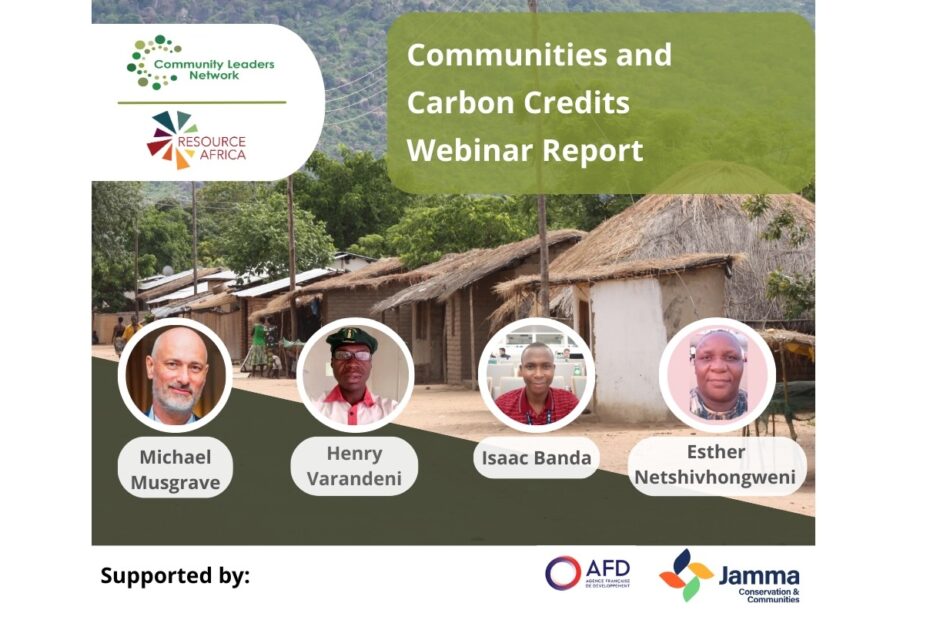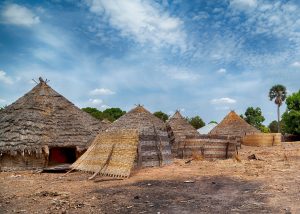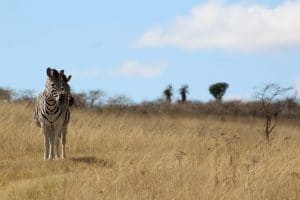Can Voluntary Carbon Markets Provide Real Benefits for Rural Communities?
Global companies that emit high amounts of greenhouse gases (e.g. carbon dioxide and methane) can choose to pay projects that capture carbon or reduce the loss of carbon into the atmosphere (e.g. by reducing deforestation). These voluntary carbon markets are among the mechanisms established on global platforms in response to global warming and climate change.
Community-based organisations (CBOs) have engaged in these markets through the Reducing Emissions from Deforestation and Degradation plus the conservation, sustainable management of forests, and enhancement of forest carbon stocks (REDD+) process moderated by the United Nations Framework Convention on Climate Change (UNFCCC).
What should African CBOs know about REDD+ projects and carbon trading prior to getting involved? How have these projects worked in countries where they have been established, and what lessons can we learn from them? During a webinar organised by Resource Africa and Community Leaders Network of Southern Africa (CLN), four speakers unpacked these questions from local and international perspectives.
Henry Varandeni from Zimbabwe and Isaac Banda from Zambia provided rich local perspectives on the REDD+ projects and agreements entered between CBOs and carbon traders in their respective countries. Mike Musgrave of the African Leadership University in Rwanda considered the issue from a business perspective, as carbon traders compete on global markets. Esther Netshivhongweni viewed carbon credits and the similar concept of biodiversity credits within the broader context of Indigenous Peoples and Local Communities defending their rights and participating in conservation initiatives.
The 55 webinar attendees – including many members of CLN representing rural communities – engaged in a lively discussion after the talks, moderated by Resource Africa’s Dr Shylock Muyengwa. Some of the themes of the talks and discussions are distilled here for the benefit of communities and their support organisations that are considering stepping into the world of carbon markets. This webinar was made possible with funding from Agence Française de Développement (AfD) and Jamma International.
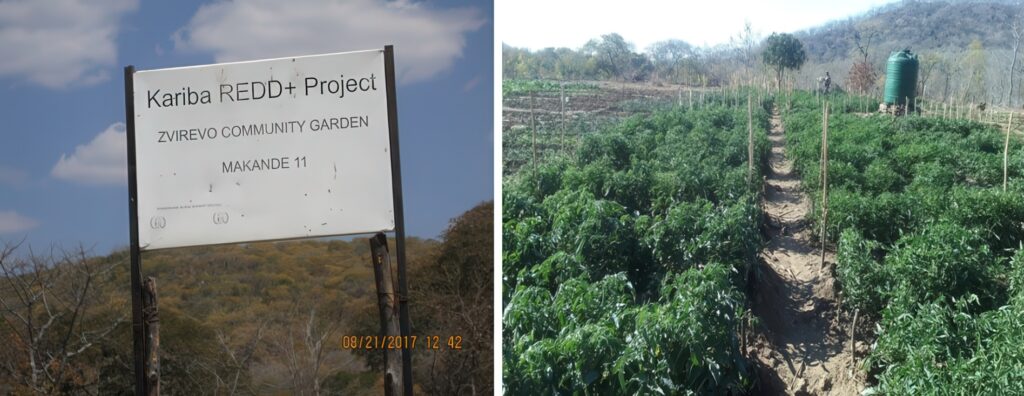
One of the community gardens funded by the Kariba REDD+ project. Photo courtesy of Henry Varandeni, Nyaminyami RDC.
Benefits from carbon markets
Mr Varandeni noted that the Kariba REDD+ project, covering 758,000 hectares and multiple districts in Zimbabwe, started to become lucrative for communities after a lag time of several years. The agreement was structured such that the initial profits from carbon trading were used to recoup the trader’s capital investment. The project started in 2011, and by 2022 the Rural District Councils and communities were receiving over US$ 600,000 per year.
The income from Kariba REDD+ was a significant boost to RDCs, including that of Nyaminyami, where Mr Varandeni works as an environmental officer. He noted that the four RDCs involved in the project became financially independent and were able to fund most of their rural development and antipoaching activities without relying on grants from central government. Besides the income generated that went into rural infrastructure development (e.g., clinics and schools), Kariba REDD+ installed clean technologies (e.g., solar panels for borehole pumps) and developed community gardens that boosted food and water security. These projects created employment opportunities for people living in these areas.
In Zambia, several carbon trading companies are engaging with communities across the country, who are assisted by the Zambia Community-Based Natural Resource Management Association where Isaac Banda works. Mr Banda highlighted benefits such as increased household income through cash transfers (where these were desired), rural infrastructure development (e.g., clinics, schools, and boreholes for drinking water), and employment opportunities for local people.
These experiences show that carbon markets have the potential to bring multiple benefits to the household level, particularly where CBOs are well governed and have equitable benefit sharing structures in place.
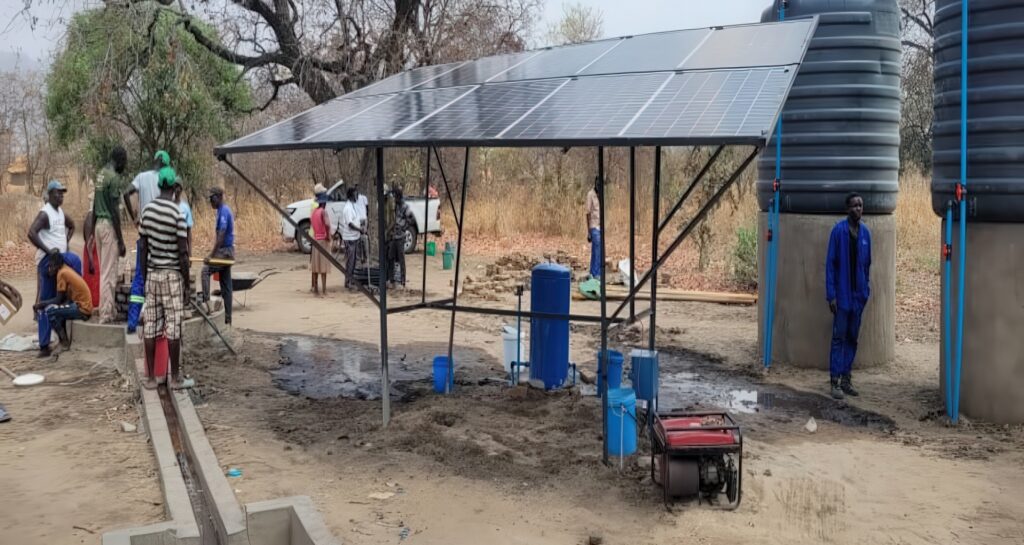
The Kariba REDD+ project included installing solar pumps on boreholes, thus boosting water security. Photo courtesy of Henry Varandeni, Nyaminyami RDC.
Transparency and Free, Prior and Informed Consent (FPIC)
All of the speakers recognised the unique challenge that carbon markets pose: their complexity makes it difficult for local communities to understand how they work. Further exacerbating this issue, the agreements entered into by communities are often extremely complicated, involving legal language that is difficult for people without legal training to understand.
Perhaps the biggest critique of voluntary carbon markets to date is their lack of transparency, which has resulted in some REDD+ projects being heavily criticised and even shut down. This issue is linked to their complexity, particularly since measuring the extent of carbon capture or prevention of carbon emissions by these projects is a difficult task. International agencies have been set up to verify carbon credits before they are sold on global markets, but even these have been criticised for their opaque processes.
Ms. Netshivhongweni cautioned that complex agreements and lack of transparency may result in communities signing away their rights to use resources without understanding the full terms of agreement. This makes upholding the principle of FPIC especially challenging for carbon-related projects. All of the speakers agreed that communities need training on how voluntary carbon markets work and how their activities on the ground relate to the sale of carbon credits.
A new organisation called International Environmental Guardianship (IEG) is starting pilot projects focused on biodiversity credits and communities in several regions around the world. Ms. Netshivhongweni is working with IEG to pilot a project in Namibia that could go some way to tackling the challenges of transparency and FPIC.
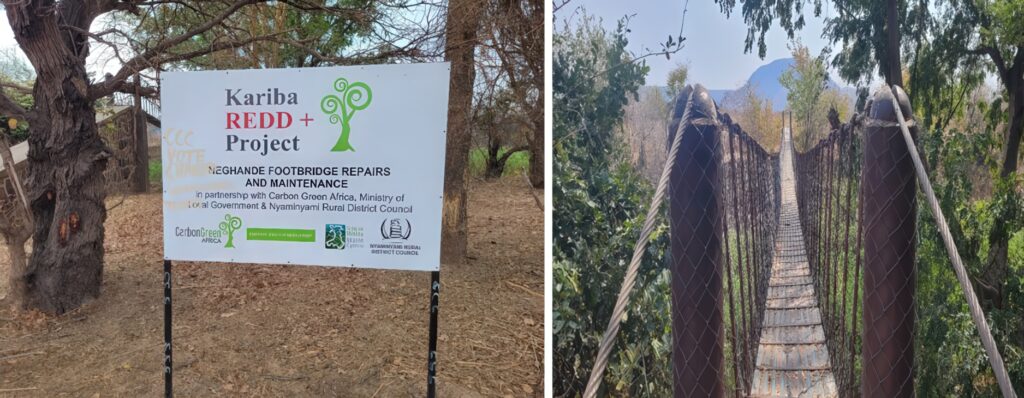
This footbridge was built with funds from the Kariba REDD+ project, which allows people to cross the river even when it is in flood. Photo courtesy of Henry Varandeni, Nyaminyami RDC.
Partnerships and fair deals
The structure of partnerships between carbon traders and communities came under intense scrutiny during the webinar. In the current system, as demonstrated in Zimbabwe and Zambia, carbon traders are capital investors that need to earn their money back before paying out to communities. The communities are perceived as passive beneficiaries, rather than active contributors. Several speakers pointed out that communities are investing their lands and resources into the project, especially if the agreement involves reducing their use of timber and changing their farming practices.
If carbon traders and communities were partnering on equal terms as co-investors, one could make a case for sharing the initial revenues in the first few years of the project rather than sharing profits only after the trader’s initial investment is covered. Mr Musgrave nonetheless pointed out that revenue sharing (rather than net profit sharing) could lead to the whole project becoming unprofitable and ultimately unsustainable.
In this debate, an important distinction needs to be made between the value of the land and resources as perceived by local communities and the price that will be paid for carbon capture. Communities associate their lands with immense cultural significance and value their resources as a heritage from their ancestors that is held in trust for the next generation. This value can never be fully captured, and carbon markets will only pay according to the ecosystem’s capacity to absorb carbon dioxide.
As communities engage with the private sector, they need to know what is limiting the company’s ability to make a profit and how that would influence the contributions they could make to community projects. Knowing business principles and understanding how carbon prices fluctuate over time will help communities to evaluate their carbon partnerships accurately. Capacity building for CBOs is clearly needed to redress current power imbalances in this sector and increase the trust within these partnerships.
Role of government
The challenges outlined above could be mitigated or exacerbated by legislation, as explained by webinar attendees and speakers. Good legislation would protect communities from traders that are not acting in good faith and are using the complex agreements to conceal unfair deals. Legislation could undermine carbon trading, however, if the requirements result in REDD+ projects becoming financially unsustainable.
It has taken African governments some time to consider how to regulate this new industry. In Zimbabwe, the Kariba REDD+ project was initially unregulated. Criticisms of this project for its lack of transparency that came out in the global media added to local concerns around revenue sharing from carbon markets. In response, the government promulgated a Statutory Instrument in 2023 that effectively nullified the Kariba REDD+ agreement with RDCs and communities.
The Zambian government appears to have taken a more facilitative role in the carbon industry, resulting in several companies establishing REDD+ projects since the early 2010s. The government ensures that carbon traders are compliant with international carbon verification standards and has developed some guidelines for benefit sharing agreements.
Provided that voluntary carbon markets overcome the issues of transparency and credibility, they will play an increasingly prominent role in African community conservation. Other national authorities would do well to learn from the countries that have already engaged in the industry and draft their legislation accordingly.
Conclusion
As African communities and governments navigate the complex terrain of voluntary carbon markets, it is clear that they will need trusted partners to ensure that their agreements and legislation are fit for purpose. Communities must be recognised and respected as key players in the global effort to combat climate change, while governments must ensure that the playing field is fair for all parties. Under such conditions, projects funded by voluntary carbon markets should flourish in Africa, delivering tangible benefits for people and the planet.
